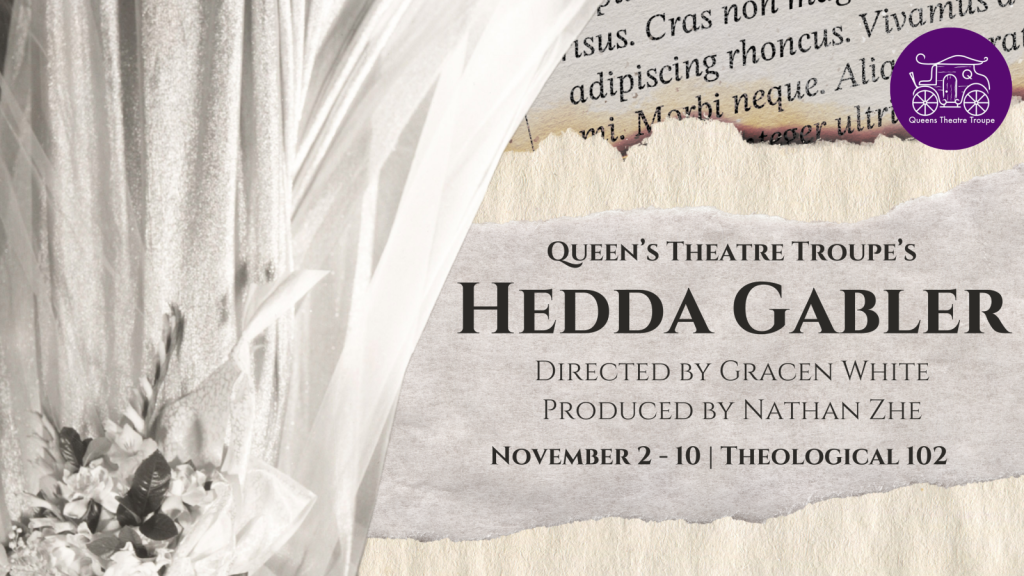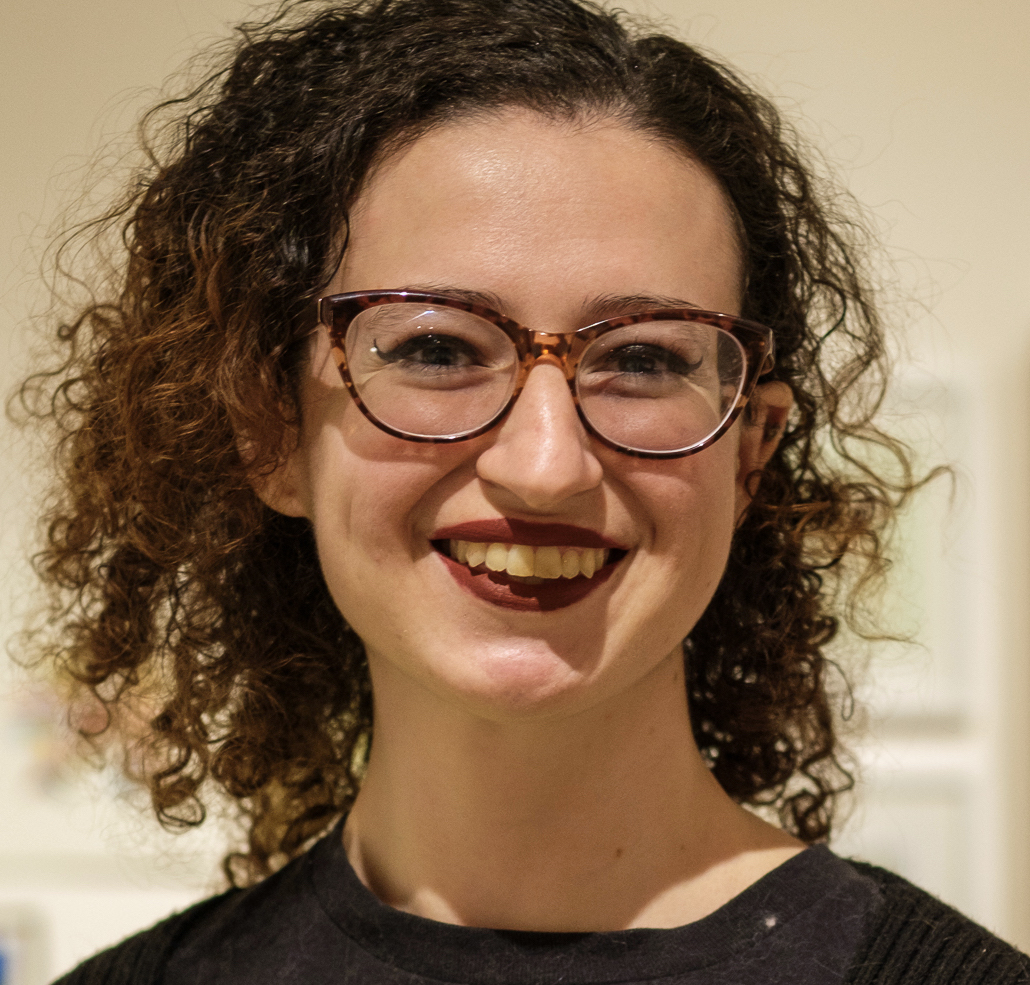Modern Drawing Room Drama and Feminine Ennui in Queen’s Theatre Troupe’s ‘Hedda Gabler’

Depicting the titular woman’s dissatisfaction with her recent marriage and position in life, the famous Hedda Gabler, written by renowned playwright Henrik Ibsen, was published in 1890 and first staged in 1891. Hedda (Rachel Fenos) has married George Tesman (Aaron Alum), an academic devoted to his work, who is blissfully ignorant of her real feelings about their union. The one-room drama follows her interactions with friends and neighbours as she attempts to truly influence another person.
Queen’s Theatre Troupe, founded in 2023, is a Queen’s student-run organization, putting on two plays a year, with the aim of providing a space for aspiring theatre professionals and performance enthusiasts alike to connect and collaborate. Directed by Gracen White and produced by Nathan Zhe, the goals of the troupe come to fruition in this show as Hedda struggles with her marriage and attempts to assert her power over her visitors.
Guests include Judge Brack (Sophie Wilson), a gossipy and unscrupulous neighbour; Thea Elvsted (Annalise Lunn), a younger acquaintance in an unhappy marriage; Eilert Lovborg (Oak Laing-Bein), an academic rival of George’s and former flame of Hedda’s; and Julia Tesman (Olivia Humphries), George’s doting aunt who gleefully anticipates the couple having a baby.
Thea seeks the Tesmans’ (including Hedda, who goes by Tesman despite the play’s title) help in escaping her marriage and is enamoured with Eilert, who is generally a philanderer and only appreciates her help with his manuscript, which he believes to be a masterpiece. Eilert is much more interested in Hedda, who is alternatively intrigued by and annoyed with him. Hedda’s attempts to assert her power centre around her goal of influencing another human being to some dramatic action, even though she feels frustratingly stuck in her marriage and situation in life.
Fenos is fantastic as Hedda, capturing equally the intensity and fervour of the role, as well as Hedda’s more offhand and flippant dialogue as she idly stirs up drama with her guests. Ibsen’s play is heavy on dialogue as the characters rapidly interact with each other, and some of the delivery in this production could be a little zippier, but the ensemble works well with each other. The group is rounded out by Bertha (Quinn Hammond), a loyal servant of the Tesmans, and a trio of Daydreams (Zoe Compson, Emily Nevison, and Jaeli Schnoor), who embody Hedda’s internal anger and frustration with her position and the company she finds herself in.
These Daydreams are not in the script and are unique to this production, making a great artistic choice to visually depict Hedda’s inner demons and struggle. The trio slowly move around stage with fluid dancing-like movements, reacting to the interactions between other characters and never perceived by anyone, except occasionally Hedda, who passes them objects or appears to respond to their presence though they are not physically present in the world of the play. This is an intriguing choice that adds visual interest and drives home Hedda’s internal struggles.
There is great movement and use of the set, designed by Olivia Humphries, adding interest and avoiding any static dialogue. The one-room drama conveys the impression of being trapped, paralleling Hedda’s feelings about her marriage. Using a relatively bare set, with a few sofas and chairs, a piano, side tables, and adorned with strings of small lights and flowers, the styling remains simplistic and delicate, allowing the script and impressive dialogue to be the main focus. The production makes the best of what is essentially a small lecture hall with a thrust stage rather than a theatre, which is unfortunate for the gravitas of the material but doesn’t detract from the performance.
Queen’s Theatre Troupe puts on an impressive show that feels like it gets the complexities of the script and Hedda’s internal and external conflicts. Taking on Ibsen’s masterpiece is no minor feat, and the troupe does well with solid performances all around.
Queen’s Theatre Troupe’s production of ‘Hedda Gabler’, directed by Gracen White and produced by Nathan Zhe, runs from November 4-10, 2024, in Theological Hall room 102, Queen’s University. For more information and tickets, click here.
